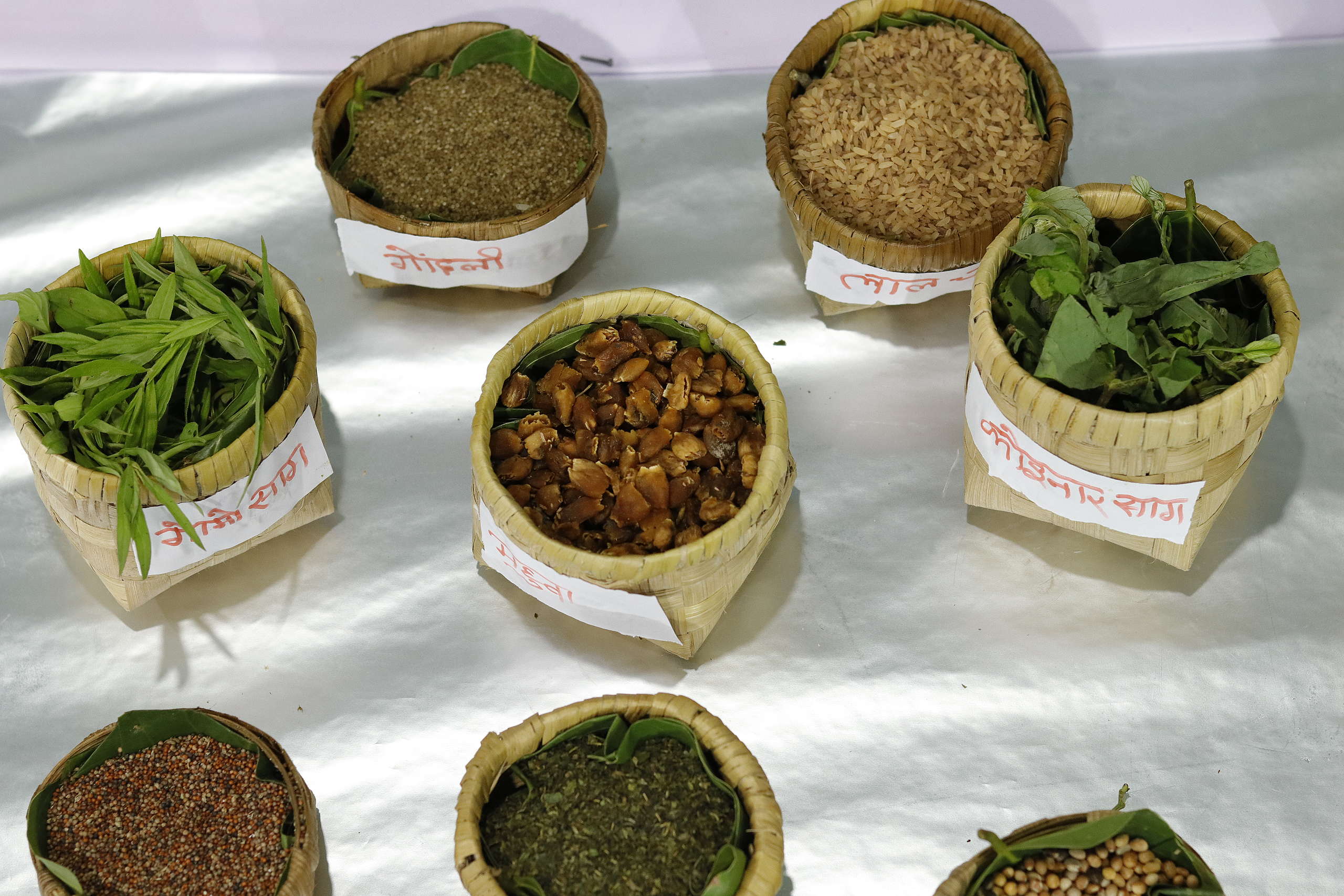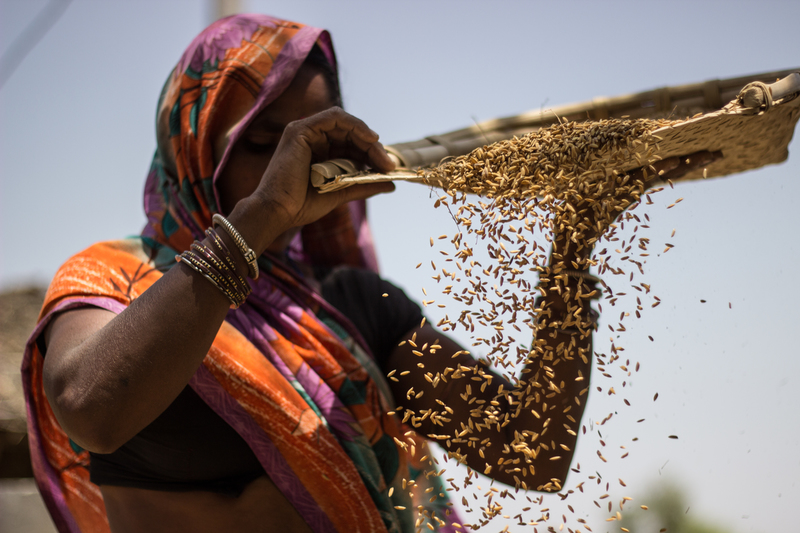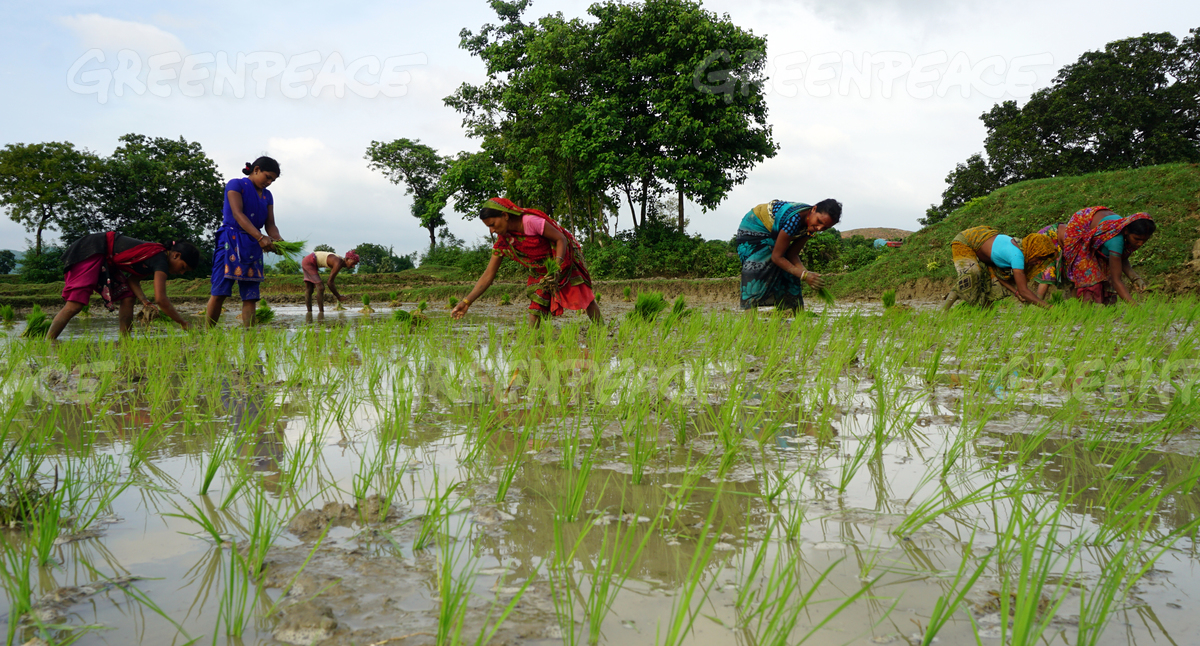Consultation on sustainable agro-economy and improving soil health was co-organised by Greenpeace India, Mahila Shramjeebee Mancha, Odisha, and Odisha Shramjeebee Mancha on Tuesday. The discussion aimed to sensitise stakeholders especially farmers and politicians towards the importance of soil health, disadvantages of using chemical fertilisers and proper budget allocation to organic farming.
India has a mixed economy, with home to vast agricultural diversity. According to FAO (Food and Agriculture Organisation of the United Nations), “India is the world’s largest producer of milk, pulses, and jute, and ranks as the second-largest producer of rice, wheat, sugarcane, groundnut, vegetables, fruit, and cotton. It is also one of the leading producers of spices, fish, poultry, livestock and plantation crops. Worth $ 2.1 trillion, India is the world’s third-largest economy after the US and China”. Now slowly India is moving towards an economic slowdown, the latest annual report of the RBI for the fiscal year 2018-19 (FY 19) confirmed that the Indian Economy has indeed hit a rough patch. GDP growth rate has slipped to 5% in the first quarter of FY20 which is lowest in over six years.
Good support of a government can turn the tables. Agriculture has always been a key tool in helping India to come out with such economic depressions. They say one must learn from his past. During the recession of 2008 where most of the major countries like Ukraine, Argentina and Jamaica, were the countries most deeply affected by the crisis. Other severely affected countries were Ireland, Russia, Mexico, Hungary, and Baltic states. The impact on the Indian economy was less severe because of lower dependence of the economy on export markets and a major contribution to GDP was from domestic sources.
Sustainable agricultural campaigns done by Greenpeace aim to motivate stakeholders especially farmers and the government to focus on the organic style of farming. Educating them regarding the need and importance of organic farming and the disadvantages of chemical-based farming. “We allocate Rs 3,38,569 crore in defence to safeguard our people from any external disturbance in our country, which is good. But on the other hand, allocating around 0.30% on organic farming which in turn destroys soil and food. Kills and disturbs the health of farmers and consumers respectively is not safeguarding them from internal threats” said Ishteyaque Ahmed (Senior Campaigner, Greenpeace India).
The steps taken should be revenue generative, short term help like Zero Budget Natural Farming (ZBNF) by Union Finance Minister, Nirmala Sitharaman and blaming US-China relations for economic slowdown would certainly not help India to achieve its goal. The goal is not just to maintain the economic growth of our country but to provide healthy, nutritious food to every citizen of our country.
(Author is an Independent Journalist based in Bhubaneswar)



